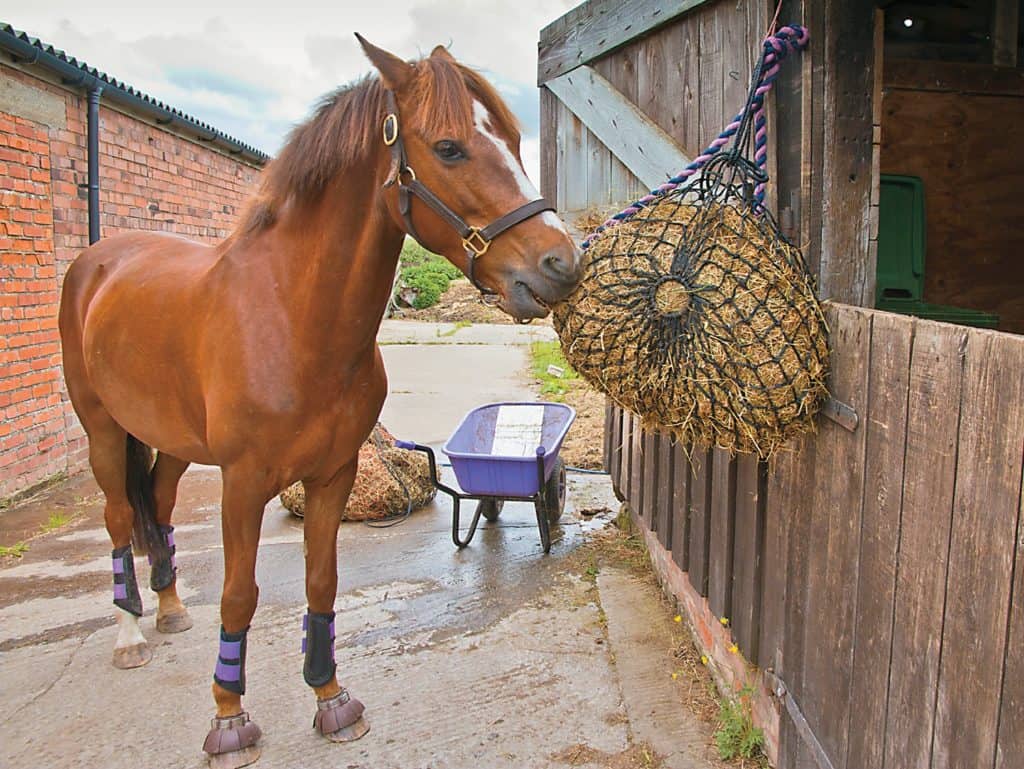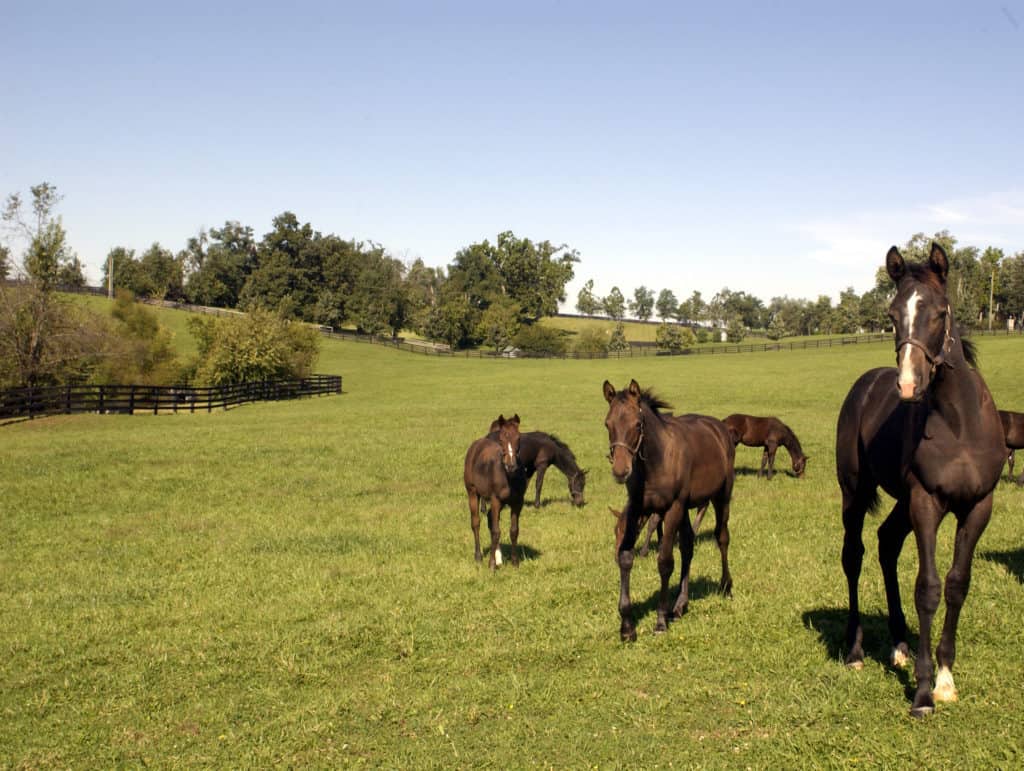
Unsung Trace Mineral Heroes
While copper, zinc, iron, and selenium get a lot of attention in equine diets, manganese, iodine, and cobalt are also important for horse health.

While copper, zinc, iron, and selenium get a lot of attention in equine diets, manganese, iodine, and cobalt are also important for horse health.

As autumn approaches, consider whether you need to make changes to your horse’s diet in preparation for winter.

Horses with conditions such as muscle or metabolic disease might have special hay needs to stay healthy.

As we move into fall, here’s a quick list of recommendations from the University of Kentucky to help manage pastures.

Just six or seven months ago, Kentucky was dealing with overabundant rainfall and soaked pastures, but now things are close to bone dry. Kentucky needs rain, and fast.

In recent years it has become popular among North American horse owners looking to reduce the amount of sugar in their horses’ diets.

After a horse has had a bout of laminitis, can she be brought up slowly on grass again? If so, how soon can this be done?

Use these disease prevention strategies to protect your horse on the farm, at the horse show, and in the breeding shed.

An equine critical care specialist shares advice for dealing with a colic while waiting for your vet.

Don’t wait until your foal is weaned to plan a diet that meets his increased energy, protein, and mineral requirements.

More than four hours without feed is fasting for a horse and can lead to issues. The solution for evening feeding? Slow feeders extended nighttime “grazing” time by 95-105%, researchers observed.

Here’s how to react if your horse consumes feed designed for another animal.

Owners who struggle to provide their horses with consistently good-quality forage might be able to improve feed digestibility and topline development by offering these horses a fortified feed, researchers find.

An equine nutrition expert shares tips for feeding horses during natural disasters.

A researcher investigated how long horses spent eating when offered varying amounts of soluble fiber. Her findings could help your horse avoid health and behavior issues, such as gastric ulcers and cribbing.

Up to 93% of performance horses suffer from gastric ulcers. Is yours one of them? Here’s how to manage the condition.
Stay on top of the most recent Horse Health news with
"*" indicates required fields